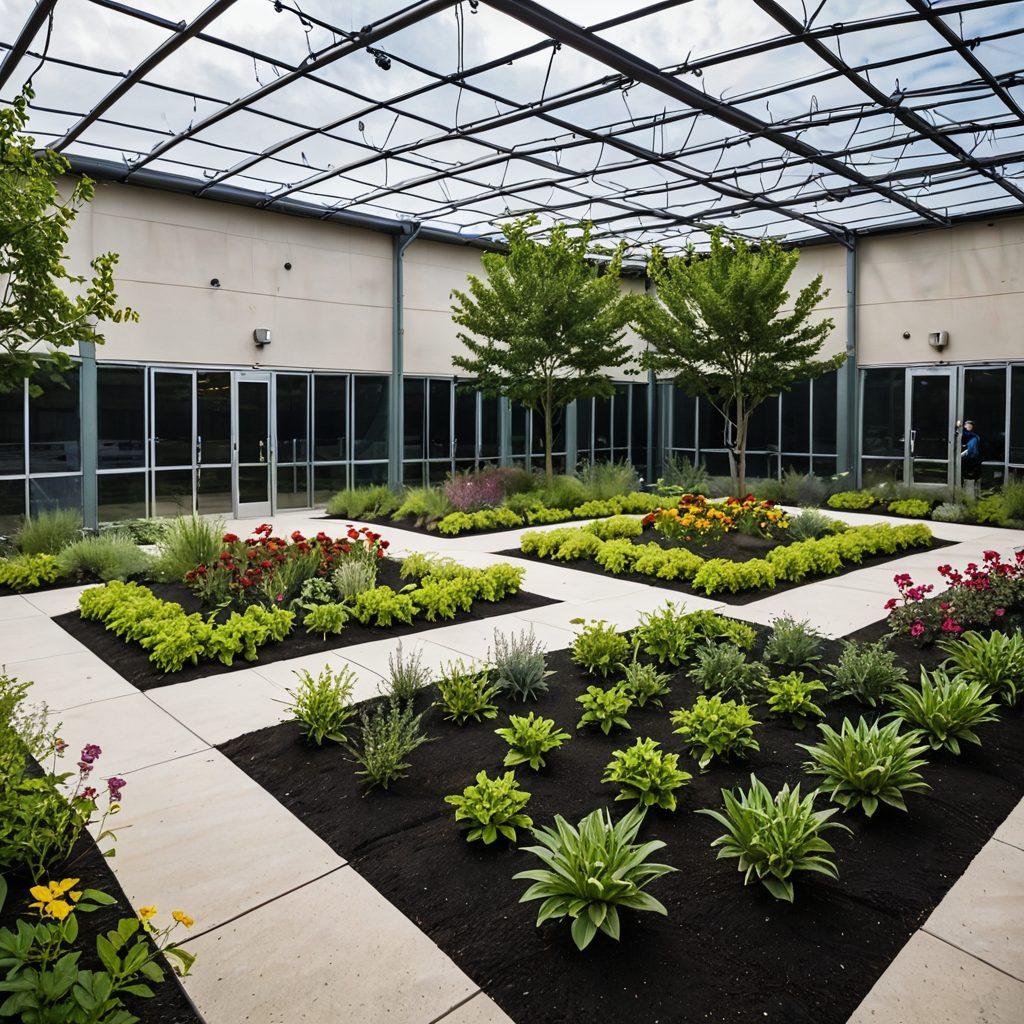Reforming New Jersey's Corrections: A Comprehensive Guide to NJDOC Policies and Rehabilitation Programs
Navigating the complex landscape of the New Jersey Department of Corrections (NJDOC) can be quite the journey, especially for those seeking to understand how the New Jersey prison system functions and the reforms that are underway. Have you ever wondered how the policies within NJDOC impact the lives of inmates and the possibility of rehabilitation? With a focus on effective New Jersey corrections, it's crucial to delve into the NJDOC policies that are at the forefront of enhancing rehabilitation in state correctional facilities New Jersey. Let's embark on a quest to explore how NJ corrections can pave the way toward second chances for countless individuals.
One of the standout features of the New Jersey rehabilitation programs is their commitment to fostering change and reducing recidivism among inmates. Picture this: you’re an inmate in a New Jersey state correctional facility, grappling with the realities of incarceration. However, thanks to the available NJ inmate services, you have access to educational programs, vocational training, and counseling. These resources are more than just services—they are lifelines to a future beyond walls. As we dive deeper, it's vital to acknowledge that successful rehabilitation extends beyond the prison bars and into the community. How does New Jersey feel about investing in the future of these individuals?
The effectiveness of the New Jersey parole system is another critical element in achieving successful reintegration into society. NJDOC policies ensure that offenders are not just released at the end of their sentences but rather equipped with the tools, resources, and guidance needed for life on the outside. The journey to rehabilitation goes hand in hand with proper New Jersey offender management, which can significantly decrease the likelihood of re-offending. When we consider how someone’s past does not have to dictate their future, it brings us to the question: Can we truly change the narrative of incarceration through supportive programs?
Community supervision is a pivotal factor in the aftermath of NJ incarceration. Following their release, many individuals face the daunting challenge of reintegrating into a society that often stigmatizes their past. The New Jersey correctional administration understands this struggle and emphasizes support through community alternatives that encourage positive engagement, personal accountability, and continuous access to New Jersey rehabilitation programs. By actively participating in their recovery journey, former inmates can transition more seamlessly into productive societal roles. It raises an eye-opening thought: facilitate or falter—what path will we choose for those trying to reclaim their lives?
In the evolving landscape of NJ prison reforms, the push toward compassionate and constructive corrections is gaining momentum. The programs and policies being developed by NJDOC not only aim to rehabilitate but also to empower individuals to break the cycle of crime and become responsible members of the community. It’s a collaborative mission between the correctional system, social services, and the community at large. As we anticipate future reforms, one thing remains clear: the heart of New Jersey corrections lies in mercy, understanding, and hope. Isn’t it time we all advocate for a system that believes in redemption over punishment?
Transforming Inmate Services: Key Reforms in New Jersey's Corrections System
When we think about the New Jersey prison system, images of stark walls and bleak outlooks can sometimes cloud our perception. Yet, within those confines lie the stories of transformation and redemption. The New Jersey Department of Corrections (NJDOC) is focused on changing lives through comprehensive reforms in inmate services. How can we, as a society, support these changes and ensure that rehabilitation becomes a reality for every person behind bars? In this blog, we will explore the key reforms in New Jersey's corrections system that aim to revitalize the lives of incarcerated individuals.
Imagine stepping into a state correctional facility in New Jersey, where the air is filled with hope rather than despair. The NJDOC has initiated a series of programs that put an emphasis on rehabilitation rather than punishment. With a commitment to modernizing New Jersey rehabilitation programs, the NJDOC seeks to provide inmates with a new set of tools to reintegrate successfully into society. As highlighted by a former inmate, "The programs I've participated in helped me rediscover my purpose. I realized I am more than my past mistakes." This statement resonates deeply as the NJDOC shapes an environment where change is not only possible but encouraged.
What does it take to overhaul the New Jersey inmate services system? The answer lies in structured, evidence-based approaches. NJ corrections are no longer just about maintaining order, but about leading individuals towards future success. With innovative programming like job training and educational opportunities, the New Jersey parole system actively seeks to equip inmates with the skills necessary for life beyond prison walls. A well-structured education can be a game-changer for many, with studies showing that those who engage in such programs are 43% less likely to recidivate. Isn’t it time we invested in these aspirations?
However, the efforts extend beyond prison walls. Community supervision and support systems post-release are equally vital components of the New Jersey correctional administration's philosophy. By focusing on comprehensive offender management, the NJDOC ensures that individuals have access to resources, counseling, and skills training that bolster their reintegration into society. After all, successful re-entry isn’t just about leaving prison; it’s about becoming a contributing member of the community, and this process begins far before the gate opens.
As we explore these critical reforms and initiatives in NJ incarceration, it's evident that the tide is turning towards compassion and understanding. As a society, we must ask ourselves: how can we further foster these changes? By supporting New Jersey rehabilitation programs, advocating for better policies, and engaging with returning citizens, we pave the way for a more prosperous and inclusive society. Transformation is within our grasp; together, we can rewrite narratives of despair into stories of resilience. Let's make New Jersey a beacon of hope and reform in the corrections landscape.
The Future of NJ Corrections: Effective Offender Management and Community Supervision Strategies
When it comes to the New Jersey prison system, the conversation about the future is more vibrant than ever. The New Jersey Department of Corrections (NJDOC) is at the forefront of pushing boundaries and redefining what effective offender management looks like. As we dive into the potential for reform and innovation within NJ corrections, one must ponder: can we create an environment that not only rehabilitates but also reintegrates? With an ever-growing focus on compassionate policies and progressive rehabilitation programs, it’s clear that the landscape of NJ incarceration is on the brink of a much-needed transformation.
Imagine a state where every individual who steps into a correctional facility leaves with more than just a lesson in hardship; instead, they walk away equipped with new skills, a renewed sense of self-worth, and a clearer path to reintegration. The NJDOC is dedicated to this vision through its comprehensive array of New Jersey rehabilitation programs. These initiatives provide educational opportunities, vocational training, and mental health support, illustrating that investing in human potential can reduce recidivism significantly. Have we ever considered what the ripple effect of such investments might mean for our communities?
The effectiveness of the New Jersey parole system hinges not only on monitoring but also on meaningful engagement with former inmates. Through innovative community supervision strategies, New Jersey corrections are shifting from a punitive to a rehabilitative mindset. These NJDOC policies are designed to ensure that individuals transitioning back into society have not only a stable environment but also access to resources that promote sustainability and accountability. As local communities embrace this model, it’s essential to ask: how can we as citizens contribute to breaking the cycle of re-offense?
Let’s shine a light on a vital aspect of New Jersey offender management—the human component. NJ prison reforms are increasingly focusing on treating inmates with dignity, emphasizing the importance of mental health and emotional support while incarcerated. For far too long, the narrative surrounding incarceration often portrayed inmates as mere statistics or problems to be managed. Today, the New Jersey correctional administration is working towards changing that narrative. They champion the idea that every person, regardless of past transgressions, has the potential for redemption. What stories of transformation do we need to share to inspire a shift in public perception?
In conclusion, as we explore the future of corrections in New Jersey, we stand at a crossroads filled with opportunities for innovation and compassion. The NJDOC is set to redefine how we perceive incarceration, emphasizing rehabilitation over retribution. By investing in New Jersey inmate services that focus on education, community ties, and personal growth, we can collectively foster an environment ripe for change. Are we ready to support our state’s corrections reform and take an active role in cultivating a safer, more inclusive society?


